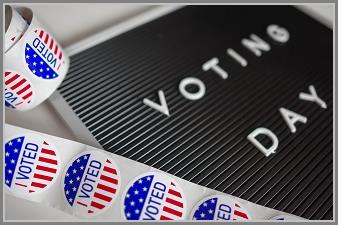
Texas Voting Law Changes
NOTE: As of 7/10/2021 the Texas Democratic House majority left to go to Washington D.C. to appeal at the Federal level the anti-democratic voting laws the Texas Republican Senate passed. Without the House votes, the Texas Congress cannot fully pass the bill items list below. The jury is out on when exactly that may occuir
1. Poll Watcher Changes
The Texas House and Senate bills give partisan poll watchers new access, protections, and power. The legislation would make it a crime for an election official to reject a poll watcher who meets the qualifications for the position. The measures would make it illegal to obstruct a poll watcher’s view, and the Senate bill states that poll watchers are “entitled to sit or stand near enough to hear or see the activity.” Texas law still prohibits poll watchers from watching someone actually cast a ballot, however.
The legislation empowers poll watchers to sue and seek court orders against election officials who get in their way. The new proposals would also require poll watchers to swear an oath that they will not harass voters. The House version goes further, preventing poll watchers from being removed for violating election law unless they’ve already been warned. The Texas branch of the American Civil Liberties Union calls this a “one-time get out of jail free card for voter intimidation.”
Republicans argue these changes are needed because voters will only trust elections if their representatives have free access to just about every aspect of voting and counting. But Democrats and civil rights organizations worry about the history of Texas conservatives using poll watchers to intimidate racial and ethnic minority voters.
2. Ballot Drop Boxes
The laws explicitly roll back ways that Democratic counties have made it easier for people to vote, especially during the coronavirus pandemic. They ban the use of drop boxes for mail ballots. (The House bill makes it a felony for any election official to send out unrequested absentee ballot applications.)
3. Automatic Mailing of Absentee Ballots
Bans the mailing of absentee ballot applications to all eligible voters.
4. Drive-thru Voting
Bans drive-thru voting and 24-hour voting locations.
Several of these procedures were used last year in the state’s largest and most racially diverse county, Democratic-leaning Harris County, which is home to Houston. The county says 140,000 people voted in its drive-thru and 24-hour locations in the 2020 election.
Republicans argue that these procedures were used during a once-in-a-century pandemic and shouldn’t be regular features of voting in the state. Democrats and voting rights groups say those measures simply make it easier for people to cast ballots and especially helped working-class and younger voters access the polls.
5. New Hurdles to Mail-In Voting
Texas is already one of the hardest states in the nation in which to vote by mail. The process is limited to those 65 and older, people who will be out of state during the election or people who are disabled. But after Trump objected to mail voting during his failed reelection campaign, Republicans in Texas and elsewhere turned against the method and have been eager to tighten regulations on it.
The Texas bill requires mail voters to include identification numbers on their envelopes and applications that must match data on their voter registration. They’d have to include their driver’s license number — although an expired one would suffice. If they don’t have a driver’s license, they can include the final four digits of their Social Security number.
Opponents of the provision — somewhat similar to one that passed in Georgia — say it is creating another opportunity for voters to make minor mistakes. Additional steps and paperwork raise the risk of ballots being discarded.
The new proposals partially address that concern. Voters who submit ballots before Election Day would be notified of problems and allowed to go to an elections office to fix some issues that can disqualify the vote, such as a mismatched signature. However, voters will not be able to fix problems with their identification numbers — ballots that don’t contain them or don’t match the ones on file can be discarded.
While Democrats and voting rights groups were cheered by the new ability to “cure” mail ballots, they worry the additional identification requirements could confuse voters and lead to ballots being rejected. Republicans say they’re a sensible way of ensuring voter identification that doesn’t run into the problems of requiring photo IDs, which are not always easily obtainable.
6. Criminal Penalties
The Texas bills, like others proposed this year, create or expand several criminal violations involving elections, some of which are broadly defined and could ensnare voters or those who help them. Republicans contend they’re necessary to prevent fraud or improper influence on voters. Democrats note, accurately, that voter fraud is exceedingly rare. The state’s Republican attorney general dedicated millions of dollars to voter fraud investigations since last year but has only turned up a handful of cases in a state where more than 11 million people voted in November.
The bills expand an existing mandate that people who help voters with mail ballots provide information on the envelope attesting to their role. Under the proposals, anyone who helps a voter fill out a ballot must also submit their signature, name, address, relationship and details of whether they were paid by a campaign or political committee.
Those who fail to fill out the information can be prosecuted, and the bills remove exemptions from prosecution from caregivers who are not family or nonfamily living in the same home as the voter.
The bills also create a new crime around being compensated to collect filled-out and sealed ballots from voters. The ACLU complains the provision is vague and could criminalize routine get-out-the-vote operations.
The legislation also requires local election officials to refer all cases of improperly cast ballots to the state attorney general. Voting rights groups worry this could be abused to prosecute common errors, such as a voter failing to update registration when moving counties. Republicans argue this is a common-sense way to prevent fraud.
Finally, the criminal provisions include one clause that Democrats have been pushing for — the House bill requires judges to inform people convicted of felonies that they cannot vote. That is in response to the case of Crystal Mason, a Texas woman who was sentenced to five years in prison in 2018 for voting while on parole, something she said she was never told was illegal.
Please, become informed and help your Country protect itself from the Republican Party and the anti-democracy influences of trumpism.


